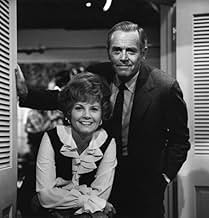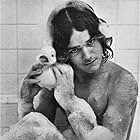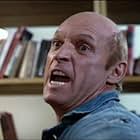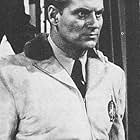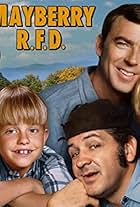Detective Chad Smith shares his life as a policeman, and as a family man with his wife and three children.Detective Chad Smith shares his life as a policeman, and as a family man with his wife and three children.Detective Chad Smith shares his life as a policeman, and as a family man with his wife and three children.
Browse episodes
Storyline
Did you know
- TriviaRon Howard stated in interviews that when he was starring on The Andy Griffith Show (1960) and Happy Days (1974), he felt the impact that he was in a hit series. With this series, he didn't feel it at all.
- ConnectionsReferenced in Rowan & Martin's Laugh-In: Carl Reiner (1972)
Featured review
Pointing the finger at "aimlessness" as the culprit for this excellent show's early demise is, in a sense, as misleading as describing "The Smith Family" as "lighthearted." Neither term is fully adequate when discussing this series. It's more accurate to say that this is a show that deserved an audience, yet failed to find one. Quite likely, such an audience simply didn't exist; sadly, I doubt even more that one would readily materialize today.
Picture "Dragnet's" Joe Friday as a family man, happily married and determined to keep his job and his homelife separate. There you have the challenge faced by Henry Fonda's Detective Sgt. Chad Smith, and the focal point around which each episode revolved. His determination to safeguard his family's normality is illustrated by their picket fence-enclosed house on Primrose Lane (an image further reinforced by the use of Jerry Wallace's hit "Primrose Lane" as the show's theme song, sung by Mike Minor with special lyrics). Unfortunately, this normality too often translated in the series as "mundane," partially due to excellent performances by a standout cast (which included a post-Opie Ron Howard as teenage son Bob), all of whom never stepped out of character.
The show did have some solid moments to it, including the episode in which a mild-mannered middle-aged gentleman inveigles his way into the Smith household as "an old friend of Chet's" shortly before Chet is due home. The suspense builds, as we're aware that this charming, innocuous individual is actually quite mad, and determined to kill Sgt. Smith for having sent him to prison several years earlier. How Chet manages to save himself and, afterward, keep his family from learning the truth (Chet: "He had an appointment and couldn't stay for supper." Betty: "Oh, what a shame.") is handled without an excess of drama or violence, highly realistically, and delivers a superb payoff. Again unfortunately, however, such quiet heroism is rarely the fare of network TV success.
Had the show delivered a touch either of the "bells and whistles and sirens" of most contemporary police dramas, or else the alcoholism and stress-related angst which several Wambaugh-inspired series would soon introduce into cops' off-duty lives, "The Smith Family" might have stuck around significantly longer. Unfortunately, Chet Smith was simply a decent man fighting the good fight, both on the job and at home; the series' doom came as a result of his winning both fights so handily.
What a shame!
Picture "Dragnet's" Joe Friday as a family man, happily married and determined to keep his job and his homelife separate. There you have the challenge faced by Henry Fonda's Detective Sgt. Chad Smith, and the focal point around which each episode revolved. His determination to safeguard his family's normality is illustrated by their picket fence-enclosed house on Primrose Lane (an image further reinforced by the use of Jerry Wallace's hit "Primrose Lane" as the show's theme song, sung by Mike Minor with special lyrics). Unfortunately, this normality too often translated in the series as "mundane," partially due to excellent performances by a standout cast (which included a post-Opie Ron Howard as teenage son Bob), all of whom never stepped out of character.
The show did have some solid moments to it, including the episode in which a mild-mannered middle-aged gentleman inveigles his way into the Smith household as "an old friend of Chet's" shortly before Chet is due home. The suspense builds, as we're aware that this charming, innocuous individual is actually quite mad, and determined to kill Sgt. Smith for having sent him to prison several years earlier. How Chet manages to save himself and, afterward, keep his family from learning the truth (Chet: "He had an appointment and couldn't stay for supper." Betty: "Oh, what a shame.") is handled without an excess of drama or violence, highly realistically, and delivers a superb payoff. Again unfortunately, however, such quiet heroism is rarely the fare of network TV success.
Had the show delivered a touch either of the "bells and whistles and sirens" of most contemporary police dramas, or else the alcoholism and stress-related angst which several Wambaugh-inspired series would soon introduce into cops' off-duty lives, "The Smith Family" might have stuck around significantly longer. Unfortunately, Chet Smith was simply a decent man fighting the good fight, both on the job and at home; the series' doom came as a result of his winning both fights so handily.
What a shame!
- bigpurplebear-1
- Feb 1, 2004
- Permalink
- How many seasons does The Smith Family have?Powered by Alexa
Details
Contribute to this page
Suggest an edit or add missing content




